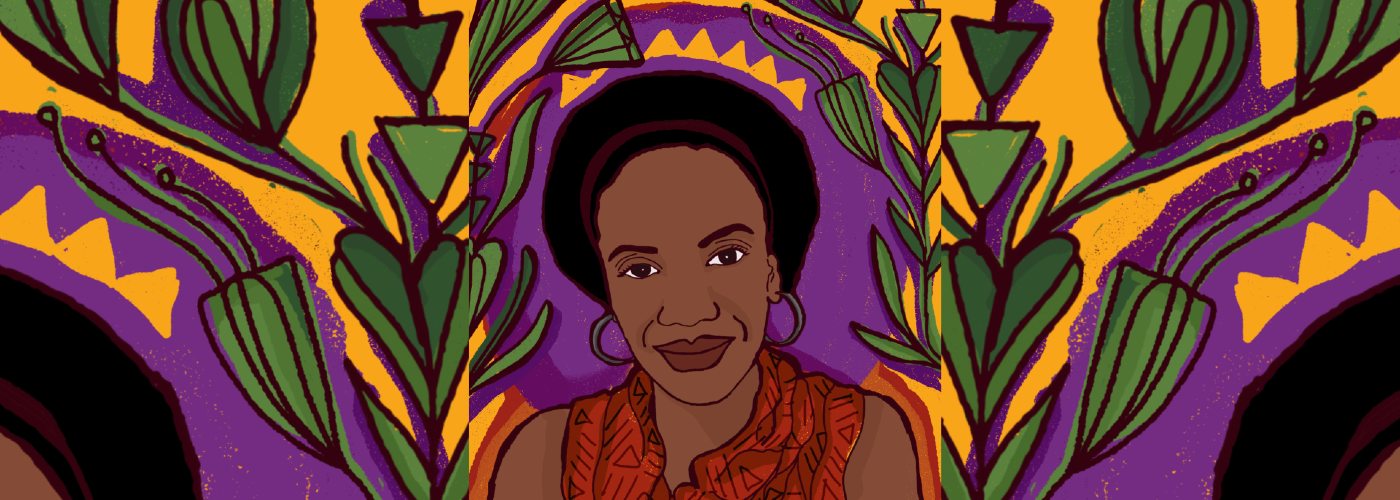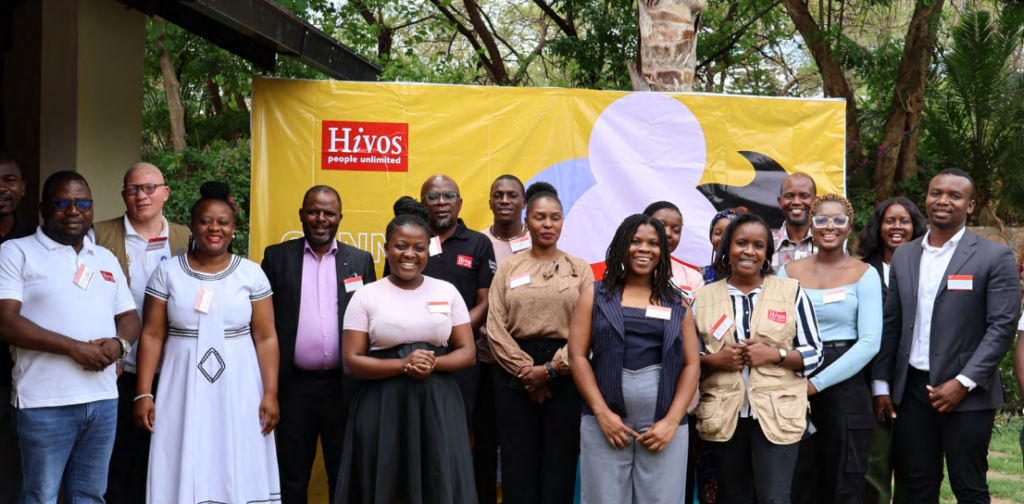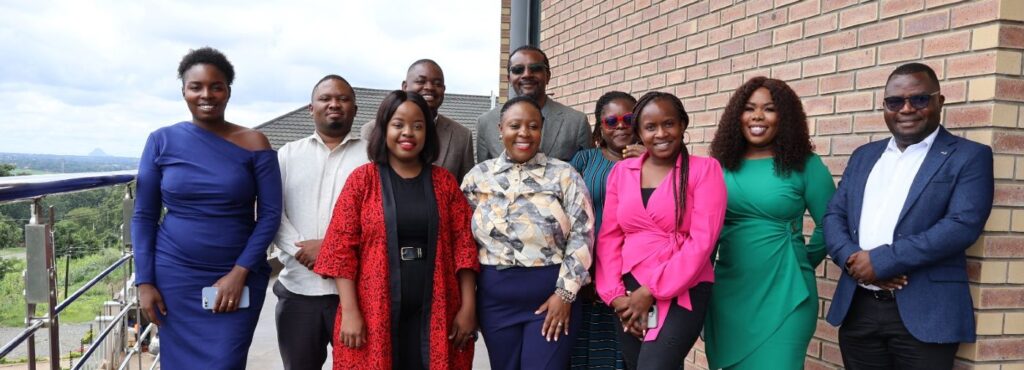Mendi Njonjo is Hivos East Africa’s Regional Director. She has been firmly anchoring Hivos in the human rights space across East and West Africa for more than a decade. Her career trajectory encompasses quite an arc. Mendi studied Mathematics at university, then took her first steps in the humanitarian sector designing early warning systems for conflict resolution within communities.
She went on to push a feminist agenda across social justice initiatives all over Africa. From the Darfur region to Kenya, she’s played an important role in leveraging the power of feminist approaches in community building. As a feminist herself, she has pioneered the gendered lens approach in tech activism to achieve open governance across sub-Saharan Africa. Beyond feminist tech activism, she’s also an environmental justice activist who’s passionate about preserving Africa’s food sovereignty in the face of climate change.
A just and sustainable Africa is possible.
Tell us about your journey in the development space
Mendi: When I graduated from university with a degree in Mathematics, I also had the conviction to do good in the world. I was thrust into humanitarian work by the Rwandan genocide, the outbreak of epidemics in Africa, and the war in Sudan. Whether immersing myself in early warning systems in conflict resolution or introducing feminism in open governance, I have relied on the power of communities to help establish a just and sustainable Africa.
What do you love about Women’s History Month?
Mendi: It’s a time when the world can stop and think about the contributions made by women to humanity. We don’t always celebrate our Sheroes as they should be. I believe Women’s History Month redresses this gap.
What does the phrase: #BreakTheBias mean to you?
Mendi: It’s about questioning our actions and impact as leaders. It pushes us to rethink the legacy we want to leave for future generations. In my space, tech for open governance, break the bias implies innovative thinking around inclusion, creating spaces for underrepresented voices and opening doors for them.
Do you think it’s Uhuru (freedom) yet for women when it comes to equality?
Mendi: We are still very far from Uhuru. We are still struggling with basic economic, social, and political things like the pay gap, women’s right to bodily autonomy, and women’s participation in politics.
How does your current role at Hivos help you mobilize and influence other women?
Mendi: As the Regional Director of Hivos East Africa, I foster movements that build strong local civil society organizations that enable citizens to push for just and fair societies. I also find funding for movements that inspire people to take action for positive, sustainable change.
Who inspires you?
Mendi: My mum and aunties, who played an immense role in my upbringing. I consider them the epitome of strength and wisdom. I am also inspired by the work of bold feminists such as Crystal Simeoni, who’s championing women’s economic justice by advocating for their inclusion in macroeconomics.
What do you want to be known for?
Mendi: I want to be known for kindness, especially in the leadership space.








